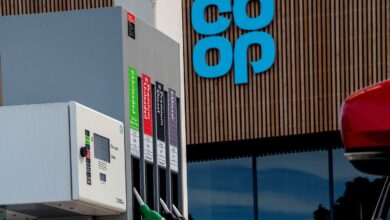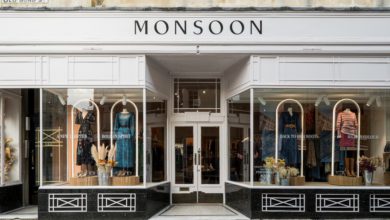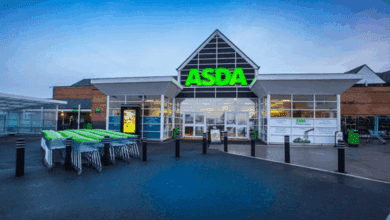Breaking barriers: How independent retailers can overcome financial hurdles
Charlotte Broadbent, UK general manager at Faire, explains that with strategic planning, a clear vision, and the smart use of technology and alternative financing options, independent retailers can navigate these barriers and set the stage for long-term success

Register to get 1 free article
Reveal the article below by registering for our email newsletter.
Want unlimited access? View Plans
Already have an account? Sign in
Starting a shop is more than just a commercial endeavour. It’s a chance for creative individuals to realise their vision and add unique value to local communities. From handmade crafts and bespoke homeware to curated fashion, the opportunities for independent retailers are vast. It’s no surprise that more than a third of Britons (38%) told Faire they dream of opening up shop and starting their own unique retail business in the future.
But while the allure of stepping behind the counter and turning dreams into reality is compelling, so are the obstacles. An increasingly competitive retail environment, economic uncertainties and the rising cost of living have created formidable barriers for aspiring retailers wanting to set up shop.
Multiple challenges: the journey to opening day
One of the most daunting challenges for any wannabe shopkeeper is securing financing. Many small and medium-sized businesses (SMBs) are either underbanked or completely unbanked, making it difficult to secure the capital needed to get their businesses up and running. This lack of financial support is particularly damaging when it comes to purchasing initial inventory, which often accounts for up to 50% of a new retailer’s startup costs and must be juggled with managing other critical expenses like renovations, equipment and marketing.
Traditional banks and lenders are often reluctant to provide loans to new businesses who are not yet proven. And, while the recent slight drop in the Bank of England’s base interest rate offers a glimmer of hope for some, financing remains a substantial barrier which stops some retailers from getting off the ground in the first place.
Even when financing has been secured, independent retailers face several operational challenges prior to opening their doors to the public. Finding the right location with sufficient footfall and a competitive lease is fundamental, as is transforming the leased space into an inviting and functional destination to move potential customers off their phones and into the physical retail experience. Renovations, furnishings, and layout planning all require substantial investment and a sprinkle of retail magic. Additionally, retailers must hire the right staff, set up payroll systems and ensure compliance with employment laws – all essentials for getting off the ground.
Innovative solutions to financial challenges
Given these substantial hurdles, how can independent retailers plug the financial shortfall? One answer lies in seeking alternative trusted sources of finance, such as established wholesale partners. For instance, the “Open With Faire” programme provides up to £20,000 in inventory credit for retailers signing up for net terms on the platform, with zero interest or fees. This initiative exemplifies how existing retail players can adopt innovative tech-led solutions—tapping into the burgeoning embedded finance market—to help independent retailers overcome initial obstacles and invest in their businesses confidently.
Independent retailers can also look to build strong relationships with local suppliers and collaborate with local tradespeople like builders and designers to manage renovation costs. And in the same vein, partnering with other local businesses for joint marketing campaigns, pop-up events, or cross-promotions can help retailers reach new audiences without significant additional costs. These collaborative efforts can foster a sense of community and mutual support among local businesses—while helping to alleviate financial challenges.
Post launch, independent retailers can benefit from a variety of technological tools. AI tools for digital marketing can streamline efforts across social media and email campaigns, helping retailers reach a wider audience more effectively. Similarly, investments in technology such as point of sale (POS) systems, inventory management software and CRM platforms, can enhance operational efficiency and customer engagement.
And when it comes to tech, retailers can leverage online platforms to expand their reach and customer base beyond the high street. Creating a user-friendly website and engaging in e-commerce can open new revenue streams and provide a convenient shopping experience for customers. Harnessing SEO techniques can improve online visibility, while engaging content and active social media presence can drive traffic and sales – all crucial for improving the bottom line.
Standing out in a competitive market
Alongside financial strategies, independent retailers must focus on differentiation to thrive in a competitive market. Offering a unique product mix, creating an exceptional customer experience and maintaining a clear value proposition are essential strategies. Retailers should constantly revisit the question, “Why do we deserve to exist?” to stay focused and relevant.
Differentiation can be achieved through various means. Curating exclusive or hard-to-find products, providing personalised customer service and creating an engaging in-store atmosphere are effective ways to stand out.
Creating a distinctive brand story is another powerful way to differentiate. Sharing the origin of your journey, the passion behind your business and the values you uphold can resonate deeply with customers. This narrative can be communicated through various channels, including your website, social media and in-store displays, building a strong emotional connection with your audience.
A bright future for those who get it right
The journey of opening a new shop is fraught with challenges, particularly in today’s financial climate. However, with strategic planning, a clear vision, and the smart use of technology and alternative financing options, independent retailers can navigate these barriers and set the stage for long-term success. They are uniquely positioned to provide the very best retail experience because they are closest to their customers and own the relationships.
The UK has long been renowned for its vibrant high streets and exceptional shops, from bustling markets to unique boutiques. By successfully overcoming the hurdles and seizing opportunities, new retailers can uphold this tradition, not only fulfilling their own entrepreneurial dreams but also helping to enrich and sustain the UK’s reputation as a hub of retail excellence.







